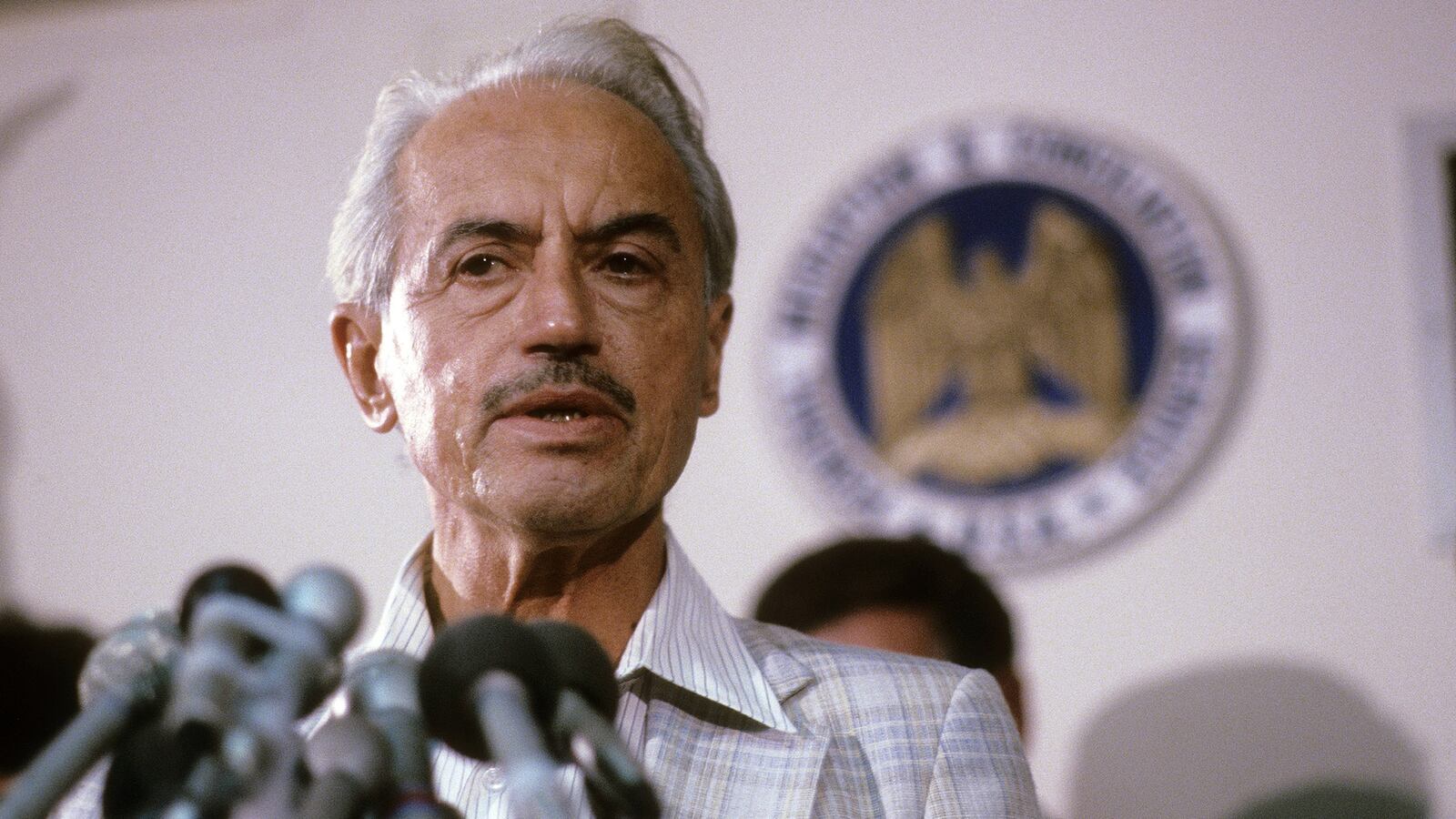Every major league baseball player should take a knee to protest the exclusion of Marvin Miller, who freed players from indentured servitude, from the Hall of Fame.
Earlier this month, the Hall’s Modern Baseball Era Committee rejected Miller—the first executive director of the Major League Baseball Players Association (1966-1983)—from entry into the shrine in Cooperstown, New York. This was the sixth time since 2003 that the baseball establishment has blacklisted Miller, who died in 2012. He never received enough votes, because the committees have been stacked with enough owners and executives to assure his exclusion.
Miller needed 12 out of 16 committee member votes (75 percent) to win a place in the hall. Five negative votes were enough to veto his admission. The committee included six team owners and executives, representing the Atlanta Braves, New York Mets, Toronto Blue Jays, Cincinnati Reds, St. Louis Cardinals, and Kansas City Royals owner David Glass, former CEO of union-busting Wal-Mart.
The committee also included six Hall of Fame players, a Hall of Fame manager, two sportswriters, and an executive with the Elias Sports Bureau, Major League Baseball’s official statistician. The ballot was secret.
In 2010, Miller came close, receiving 11 out of 16 votes cast, one under the needed margin. But this year, Miller only received seven votes. Many great players and managers, and a mix of pioneering and pedestrian executives, have been inducted in these years, but none of them had anything close to Miller’s historic impact on the national pastime.
Baseball experts overwhelmingly agree with the great Hall of Fame broadcaster Red Barber, who said that Miller was one of the three most important figures in baseball history, along with Babe Ruth and Jackie Robinson.
Over the years, many Hall of Fame players, and even former baseball commissioner Bud Selig, have said that Miller deserves a place in the hall. Tom Seaver called Miller's exclusion from the Hall “a national disgrace.” Hank Aaron wrote that “Miller should be in the Hall of Fame if the players have to break down the doors to get him in.”
Here’s why. Under Miller’s leadership, players won a democratic voice in their workplaces and dramatically improved their pay, pensions, and working conditions.
Until 1966, the players union was a toothless tiger. Players were tethered to their teams through the “reserve clause.” Their contracts “reserved” the team's right to “retain” the player for the next season. Each year, the team owners told players: Take it or leave it. The players had no leverage to negotiate better deals. Even superstars went hat-in-hand to owners at the end of the season, begging for a raise.
That year, future Hall of Fame pitchers Robin Roberts and Jim Bunning recruited Miller—the chief economist and negotiator for the steelworkers union who grew up in Brooklyn and walked picket lines with his parents, both union members—to serve as the players association’s first full-time director and help transform the sport’s outdated labor relations.
Initially, even some players, glad just to be getting paid to put on a uniform, resisted the union idea. Most sportswriters at the time sided with the management, severely attacking Miller and the union.
During his initial meetings with players, Miller explained: “If at any point the owners start singing my praises, there’s only one thing for you to do, and that’s fire me. And I’m not kidding.”
The owners and their hired commissioners fought Miller at every turn. Like all business leaders, baseball's owners warned that the union, higher wages and stronger workplace rules would destroy the industry. In fact, baseball is more popular and prosperous than ever. This year, Major League Baseball attracted 73 million fans and generated over $10 billion in revenue, an all-time high. The union simply gave players the power to win a greater share of their employers' growing revenues, especially with the addition of lucrative deals to televise games.
“People today don’t understand how beaten down the players were back then,” Miller told us in 2008. “The players had low self-esteem, as any people in their position would have—like baggage owned by the clubs.”
Miller instructed ballplayers in the ABCs of trade unionism: Fight for your rights to be treated as more than property, stick together against management, work on behalf of players who came before you and would come after you, prepare yourself—professionally and financially—for life after your playing days are over, and don’t allow owners to divide players by race, income, or their place in the celebrity pecking order.
Two years after Miller took the union’s reins, it negotiated its first collective bargaining agreement that established the rights to binding arbitration over salaries and grievances and to allow agents to negotiate their contracts. Then came the 1972 strike, which delayed the start of that season. It was primarily about player pensions. The average stay in the big leagues is 5.6 years, so increasing payments and shortening the number of years needed to qualify for a pension became critical issues. After 13 days and 89 cancelled games, the owners capitulated to the players’ demands. In 1976, the players won the right to become free agents. This gave players the right to decide for themselves which employer they wanted to work for, veto proposed trades, and bargain for the best contract. The union also won increased per-diem allowances, better travel conditions, training facilities, locker room conditions, and medical treatment. In his 1991 autobiography, A Whole Different Ball Game, Miller called those changes “like the difference between dictatorship and democracy.”
In 1980, the owners demanded that each team receive compensation for free agents, a move designed to weaken the free agency system. The owners expected the players to strike, but figured that they could outlast them. They miscalculated. The players voted 967-1 in favor of a strike. The owners refused to budge during more than a year of negotiations, so on June 12, 1981, the players walked out. With the players association keeping the players informed about the ongoing talks, they stuck together. On Aug. 10, after 50 days and 712 cancelled games, the owners caved.
The MLBPA is now the most successful union in the country. In 1967, the minimum salary was $6,000 ($44,713 in today’s dollars) and the average salary was $19,000 ($141,592). The first collective bargaining agreement the next year raised the minimum to $10,000 ($71,706). By the time Miller retired in 1983, the average player salary had increased to $240,000 ($600,411). This year the minimum salary is $535,000 and the average salary is $4.47 million. Pro athletes in other major team sports—football, basketball and hockey—saw what Miller accomplished and eventually won the same bargaining rights as their baseball compatriots. No other figure in history comes close to Miller in terms of his role in revolutionizing the American sports business. So the petty baseball moguls, determined to win retribution, have kept him out of their Cooperstown shrine.
In his 2008 interview with us, Miller said he wasn’t concerned about getting into the hall. As a staunch unionist, he knew which side he was on and understood that the baseball owners and executives who control the Hall of Fame would rig the rules to keep him out. But simple justice requires that Miller be admitted to the hall.
Every player who has donned a major league uniform over the past 50 years owes a huge debt of gratitude to Miller. The players union can repay it by mobilize a campaign—including a petition of former players and demands to add more players to the selection committee and make the votes public—to pressure the Hall of Fame to end its blacklist of this remarkable labor and sports pioneer.







